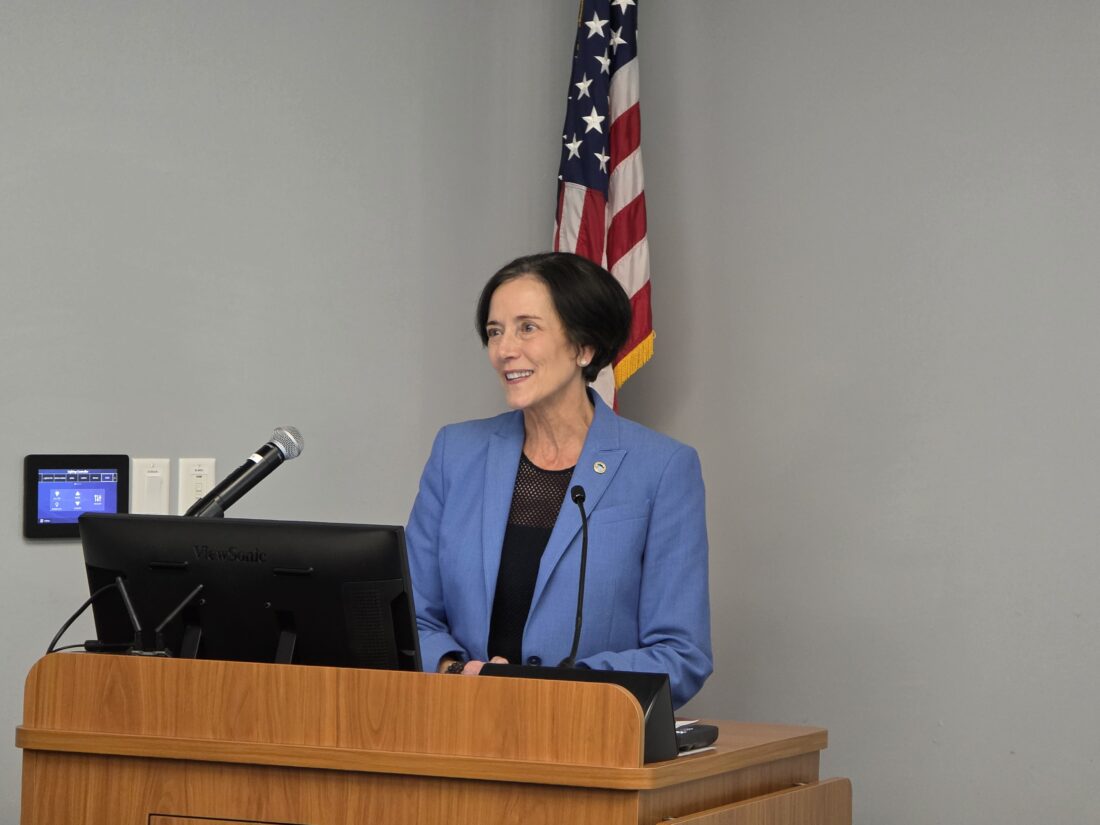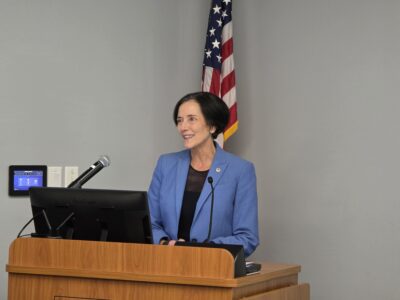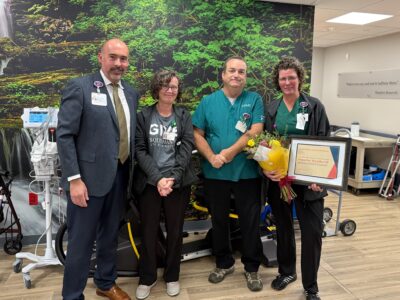Pennsylvania Department of Human Services secretary talks rural health care at summit hosted by Penn College

Health care experts from around the region as Pennsylvania College of Technology hosted the Northern Tier Regional Rural Health Summit Wednesday.
The summit brought together health professionals from a variety of disciplines to discuss the challenges of providing quality healthcare to those living in rural parts of the state.
Among the keynote speakers at the event was Dr. Valerie Arkoosh, secretary of the state Department of Human Services, who discussed rural funding priorities of Gov. Josh Shapiro.
As she stepped to the podium, Shapiro was signing a much delayed budget into effect, giving Arkoosh the opportunity to give some details on what her department would receive state-wise and federally.
“I can tell you, very happily, we’ve gotten another $10 million in the 2025-26 budget. So with the federal funding formulas this year, we will be able to invest a total of $35.1 million in our rural hospitals,” Arkoosh announced.
That amount is a small drop from funds dispersed to the same hospitals as a result of federal funding, along with the 2024-25 state budget, which saw a total of $36.7 million in funds released.
“Rural health has been a priority for this administration literally since we walked in the door,” Arkoosh said, turning her attention to the topic of the seminar.
Facing a crisis shortly taking office, the Center for Medicare and Medicaid Innovation announced it would be ending the state rural health model after its five year demonstration project was finished, Arkoosh and other officials went to work to ensure a smooth transition for the 18 hospitals that would be affected, she said, result in the creation of several regional rural health summits.
A large portion of the Shapiro administration’s focus has been on bringing state hospital regulations, which haven’t been updated since the 1980s, into the 21st century, in order to meet the “on-the-ground realities.”
“The goal is, obviously, to modernize these regulations and provide greater flexibility for hospitals that are always looking to that North Star of working towards superior quality of care for our patients,” Arkoosh said.
While meetings with interested stakeholders are ongoing, the Governor’s Office of General Counsel has been hard at work looking at ways to provide immediate assistance to hospitals as the lengthy formal regulatory process plays out.
“We all know that many of our hospitals are facing some pretty dire financial circumstances and potential closures based on sometimes externalities of who owns that hospital and other factors that are actually beyond the control of the hospital,” Arkoosh said.
“This is something the governor’s office and many of us have been deeply involved with when any hospital is even whispering about closing,” she stressed, adding that work is ongoing to make the knowledge of hospital ownership more easily understood by all.
Another immediate for Arkoosh and her team was a massive backlog in hospitals waiting to be credentialed.
“Everyone who participates in Medicaid as a provider needs a promise number before they can enroll with providers,” she explained, adding that at the beginning of her tenure, there was a 35,000-person wait list.
After allowing overtime and other staffing adjustments, that number was knocked down to zero within four months, Arkoosh said.
The administration also continues its work to create a streamlined, efficient payer system.
It has also been a priority to ensure that those with substance abuse issues are able to connect with the resources they so desperately need.
“One of the reasons we’re having these regional health summits is because we want to do a much better job of making sure that providers and others understand what resources are available in their counties, because there’s a huge disconnect between those two things,” Arkoosh said.
One of the biggest areas of improvement highlighted is the need for better education on warm handoffs, which involve getting someone who has recognized their need for help to the correct resources as quickly as possible.
“That moment is so important, because sometimes, if we can’t get that person help right away, that moment doesn’t last for very long,” Arkoosh stressed.
“That is one of the things that the state Department of Drug and Alcohol Programs is working on with this project to increase the training on what’s available in different counties, in different regions, how to implement those warm handoffs, how to beef up staffing on a 24/7 basis, so people can contact somebody in the middle of the night, and make sure that there’s stronger policies around that,” she said.
Funding for some of these programs and initiatives has come from opioid settlements obtained during Shapiro’s time as the state attorney general, Arkoosh pointed out.
Finally, Arkoosh touched on the work the Department of Aging is doing to strengthen the relationship between the 52 aging agencies it oversees, many of them in rural communities.
“The agencies work to deliver a variety of services and supports to help older adults thrive with the goal of enabling people who wish to continue to live independently in their community, many of them serving predominantly rural populations,” she said, adding that they are “often some of the most trusted entities in various communities.”
The focus of much of this work has been on ensuring a continuation of care as they move from hospital stays back home or to rehab facilities.
“All of those pieces help make sure that those transitions are successful, with the goal of reducing preventable hospital readmissions, which we know is a burden on our hospitals, and frankly, can be an economic burden on them, because they can be eligible for penalties if their rate of avoidable readmissions is too high,” she said.





